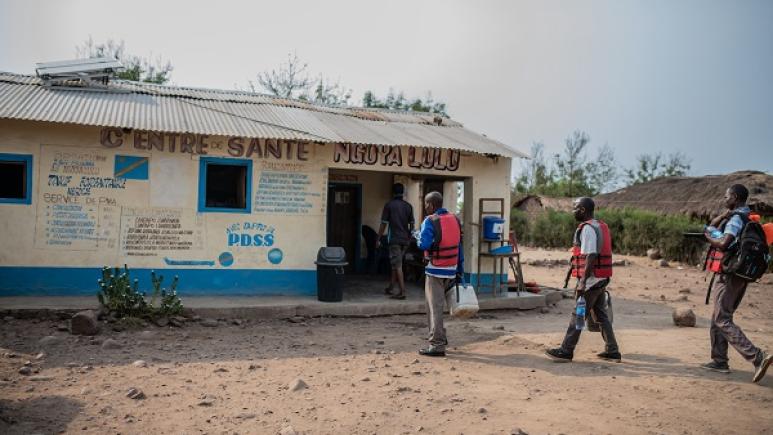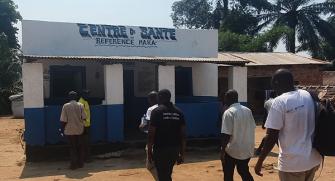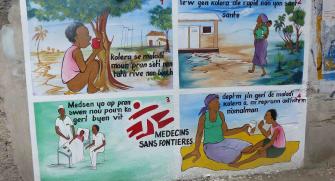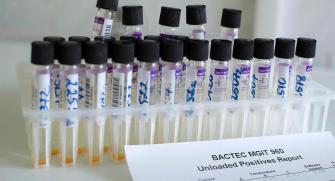Evaluation of the impact of mass vaccination campaigns against cholera and the effectiveness of the vaccine
Cholera continues to ravage the eastern part of the Democratic Republic of Congo (DRC), exacerbated by precarious sanitary conditions, ongoing conflict and extreme weather events. Epidemics vary in scale, but only a rapid response can halt their spread. Since the end of 2022, the intensification of conflicts and population displacements has led to an upsurge in cases in Kivu region.
Mass vaccination campaign against cholera: an effective strategy?
In endemic areas, where the disease regularly re-emerges, mass oral cholera vaccination (OCV) campaigns are recommended to prevent and control the disease. Since 2019, the DRC has implemented such preventive campaigns in cholera hotspots, targeting the provinces of North Kivu, South Kivu, Tanganyika, Haut-Lomami, and Haut-Katanga, as part of a multi-year elimination plan.
“The performance of the vaccine suggests that, with a two-dose campaign targeting individuals aged over 1 year and covering a large proportion of the population, there will be a significant reduction in the incidence of the disease over at least three years compared with the period prior to vaccination," explains Anaïs Broban, epidemiologist at Epicentre. However, the actual impact of these preventive vaccinations remains poorly documented.
Since 2021, Epicentre has been running a research project funded by Wellcome, UK AID, and the Foreign and Commonwealth Development Office to assess the medium-term impact of these mass vaccination campaigns. The project involves collecting data from people suspected of having contracted cholera, households and communities in the urban site of Goma (North Kivu) and the rural site of Bukama (Haut-Lomami). Initially scheduled to end in mid-2024, the project has been extended to build on the initial promising results and extend its scope to include an assessment of vaccine effectiveness.
A promising first phase
In the first phase, clinical surveillance was stepped up in cholera treatment centres and units. To date, around 20,000 suspected cases have been detected in Goma and 1,500 in Bukama. Laboratory analyses then confirm the infections, and in the Goma site, investigators have visited certain households where a case has been confirmed to gather information on exposure to cholera and risk factors, and to take samples. Several lessons have already been learned from these studies: in the town of Goma, drinking surface water or water delivered by truck appears to be a risk factor for cholera infection, while in the Internally displaced people (IDP) camps where distribution is managed by non governamental organizations (NGOs), delivery by truck has a protective effect. In Bukama, the risk seems to be associated with the management of the public distribution system, offering an opportunity to improve current practices.
Serological surveys measuring levels of immunity have also been carried out, involving around 5,000 people in Goma and 1,800 in Bukama In addition, two vaccination coverage surveys were carried out in 2022, one in Goma, 2 years after the mass campaigns, and the other in Bukama following vaccination. The latter was carried out using an innovative community-based approach, relying on the teachers in the villages surveyed.
In the urban area of Goma, this survey revealed lower coverage than expected based on administrative coverage. In the health areas vaccinated in 2019 and 2020, coverage for one dose is around 50%, and coverage for two doses is 13%.
The epidemiologist explains: "The piecemeal vaccination strategy, targeting only certain parts of the city and not others, vaccination in several stages and population movements in Goma have tended to dilute vaccination coverage. In contrast, post-campaign coverage in Bukama is high, with around 85% of people aged over 15 and almost 90% of the under-15s having received at least one dose, thanks to a vaccination strategy well adapted to the population's lifestyle."
Start of phase 2, including vaccine efficacy
Thanks to Wellcome, a second phase of the project has just begun. It includes the continuation of surveillance, an evaluation of the efficacy of the oral cholera vaccine using a case-cohort study, a series of multi-indicator surveys in Goma and Bukama (vaccination coverage, incidence of suspected cholera cases, mortality and population movements) and qualitative surveys to understand the factors influencing vaccination coverage, such as the reasons for non-vaccination and population movements. "We are going to monitor changes in vaccination coverage and the factors influencing it, as well as mortality, and assess the effectiveness of the vaccine by means of an observational study based on age, number of doses and time since vaccination," adds Anaïs Broban.
This observational vaccine effectiveness study in Goma will recruit confirmed cases from health centres and compare them with controls from the community. Participants will be monitored regularly, through home visits or telephone calls, for the duration of the study, enabling the data needed to compare the number of cholera cases between vaccinated and unvaccinated people to be collected. The aim of the project is to fill gaps in the knowledge of the oral cholera vaccine, such as the duration of protection, and to provide information on which to base recommendations for an appropriate revaccination schedule. In addition, the impact of a delayed second dose and efficacy in children under 5 will be assessed. Defining the best vaccination strategies for maintaining high coverage over the long term and understanding how campaigns are perceived by the community are key issues for effective OCV campaigns in the DRC.
Crédit photo : Moses Sawasawa










